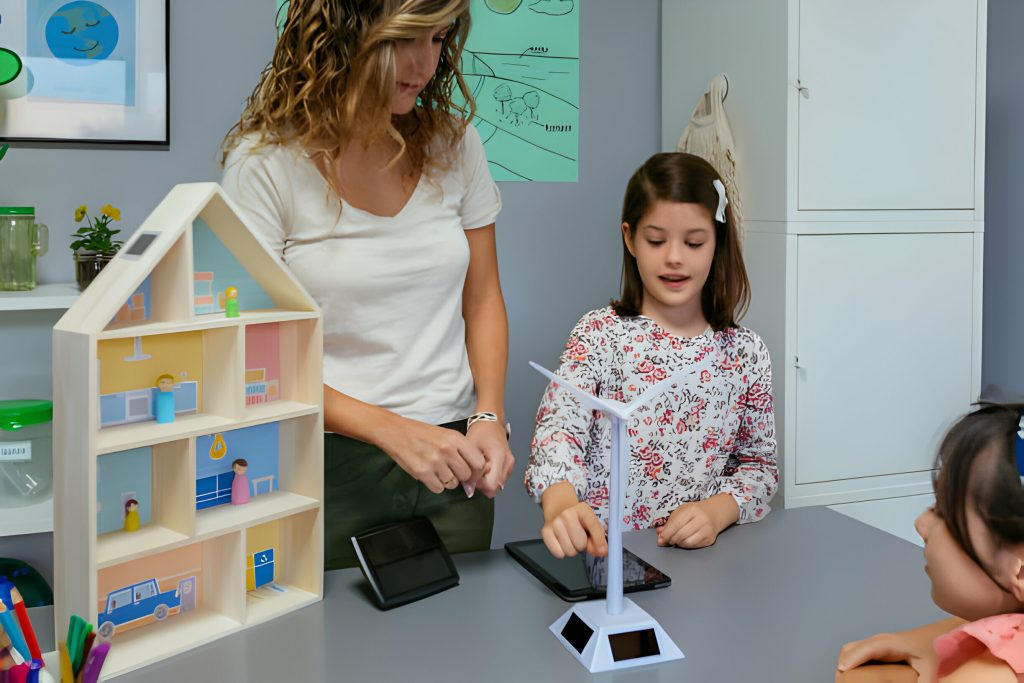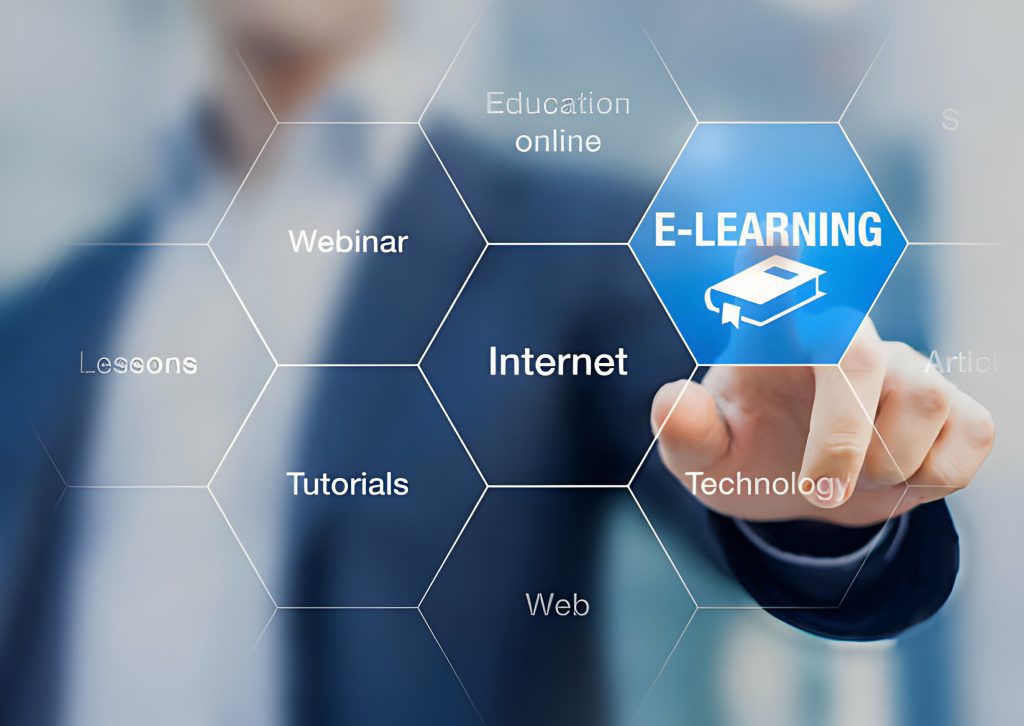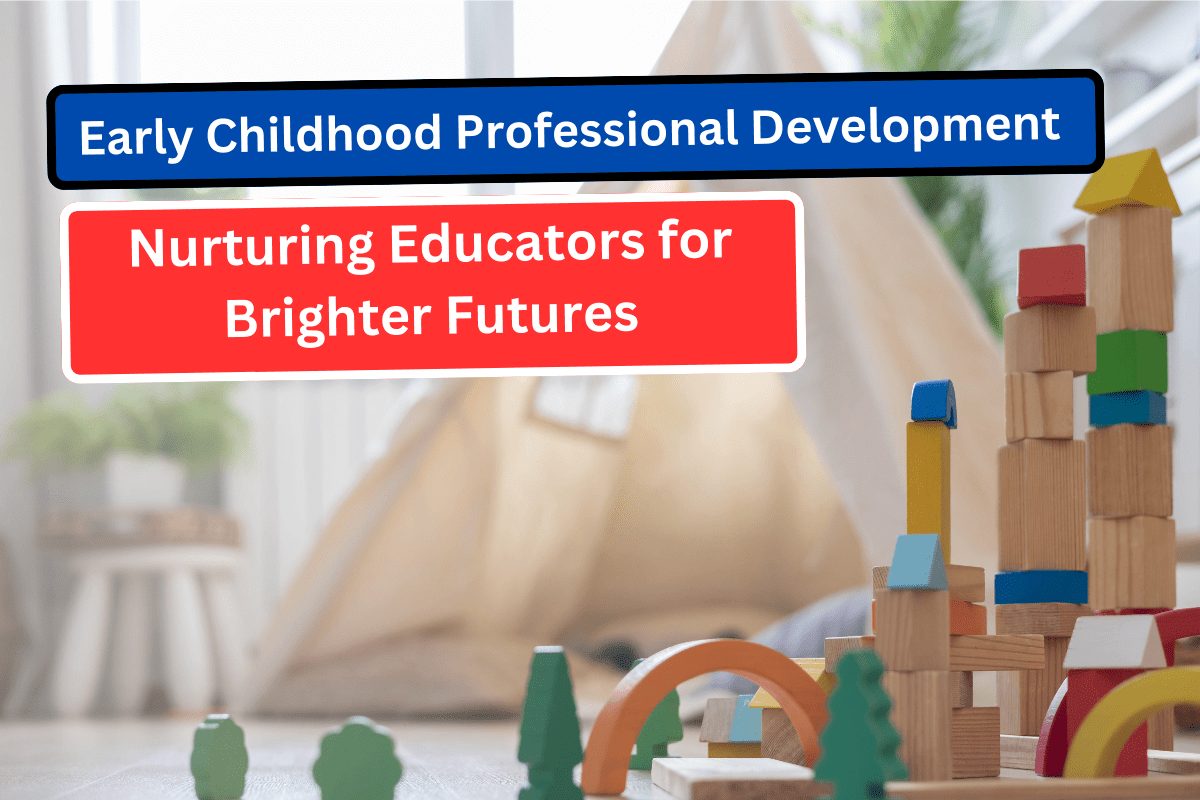
In the dynamic field of early childhood education, professional development stands as a cornerstone for educators striving to create impactful learning experiences.
This article delves into the various facets of early childhood professional development, from its historical evolution to contemporary best practices, challenges, and future trends.
The Evolution of Early Childhood Education
Early childhood education has undergone a remarkable transformation over the years. From humble beginnings rooted in historical practices to addressing modern challenges, the field has adapted to meet the needs of evolving societies. Understanding this evolution provides valuable insights into the current state of professional development. [Early Childhood Professional Development]
Key Components of Professional Development
To foster effective learning environments, early childhood educators engage in various professional development activities. These range from formal education and degrees to workshops, seminars, mentorship programs, and online learning platforms. Each component plays a crucial role in shaping well-rounded educators equipped to meet the diverse needs of young learners.
Professional Development’s Effect on Early Childhood Teachers
The positive Professional Development’s Effect on Early Childhood Teachers cannot be overstated. As educators actively participate in ongoing learning opportunities, they witness improvements in teaching practices, enhanced classroom management skills, increased job satisfaction, and, most importantly, a positive impact on children’s learning outcomes.
Best Practices in Early Childhood Professional Development
Individualized learning plans, collaboration, reflective practices, and staying updated with research and trends are key practices that elevate the effectiveness of professional development. These strategies empower educators to tailor their learning experiences, collaborate with peers, reflect on their teaching methods, and stay abreast of the latest developments in the field.
Challenges and Solutions
Despite the evident benefits, challenges in early childhood professional development persist. Limited resources, time constraints, and resistance to change pose hurdles. However, through innovative solutions and a commitment to overcoming these challenges, educators can continue to grow and thrive.
Incorporating Technology in Professional Development

Professional development is being modernized in large part because of technology. Online courses, webinars, educational apps, and virtual collaboration platforms provide accessible and flexible avenues for educators to enhance their skills. Embracing technology ensures that professional development remains adaptive and relevant.
Case Studies of Successful Professional Development Programs
Real-world success stories showcase the transformative power of effective professional development programs. These case studies highlight measurable outcomes, demonstrating the tangible benefits that educators and, subsequently, young learners experience through well-structured and impactful professional development initiatives.
Future Trends in Early Childhood Professional Development
Looking ahead, the future of early childhood professional development holds exciting possibilities. Advancements in technology, global collaboration, and adaptive learning models are set to redefine how educators engage in continuous learning, ensuring they remain at the forefront of providing quality education.

Florida Early Childhood Professional Development Registry: Empowering Educators for Excellence
In the vibrant landscape of early childhood education in Florida, the Florida Early Childhood Professional Development Registry stands as a beacon of support and empowerment for educators. This article delves into the significance of the registry, its purpose, benefits, registration process, available resources, success stories, and the role it plays in fostering a collaborative and thriving community.
Introduction
The Florida Early Childhood Professional Development Registry serves as a vital platform within the realm of early childhood education. Designed to centralize information and connect educators with opportunities, this registry plays a pivotal role in advancing the careers of those dedicated to nurturing young minds.
Purpose and Components of the Registry
At its core, the registry aims to streamline information crucial for early childhood educators. From tracking professional development activities to showcasing qualifications, it provides a comprehensive overview of an educator’s journey. Key components include qualifications, training, and ongoing professional development pursuits.
Benefits for Early Childhood Educators
Participation in the registry brings a multitude of advantages. Educators find themselves on a path of continuous growth, with increased visibility in the professional landscape. The registry not only acknowledges achievements but also opens doors to new opportunities, contributing significantly to career advancement.
Registration Process and Requirements
Navigating the registration process is made simple through a step-by-step guide. Educators can efficiently submit the necessary documentation, ensuring their qualifications align with the standards set by the registry. Understanding the requirements is crucial for a seamless registration experience.
Training and Resources Available
The registry goes beyond documentation; it actively invests in the professional development of registered educators. Various training programs and resources are offered, enriching their skill set and keeping them abreast of the latest trends and methodologies in early childhood education.
Success Stories and Testimonials

Real-life stories of educators who have benefited from the registry paint a compelling picture. These narratives highlight the positive outcomes, career advancements, and the transformative impact the registry has had on their professional journey.
Challenges and Solutions
While participating in the registry, educators may face challenges. Identifying common obstacles and providing effective strategies for overcoming them ensures that educators can maximize the benefits of their involvement.
Collaboration and Networking Opportunities
The registry extends beyond an individual pursuit, fostering connections within the early childhood education community. Educators and institutions alike find a platform to collaborate, share insights, and build a supportive network that enhances the overall quality of early childhood education in Florida.
Continuous Improvement Initiatives
Feedback mechanisms and regular updates are integral to the registry’s success. Ensuring that the platform evolves with the changing needs of educators and aligns with the dynamic landscape of early childhood education is paramount for its continued effectiveness.
Free Early Childhood Professional Development: Nurturing Educators Without Breaking the Bank
Embarking on the journey of professional development in early childhood education need not be a financial burden. In this article, we explore the avenues and resources available for free early childhood professional development, ensuring educators can thrive in their roles without breaking the bank.
The Importance of Continuous Learning
Professional development is essential for early childhood educators to stay current with best practices and enhance their teaching skills. However, the cost of workshops, courses, and certifications can be a barrier for many. Recognizing the significance of continuous learning, the education community has embraced the idea that quality professional development should be accessible to all.
Free Workshops and Webinars
Several organizations and educational institutions offer free workshops and webinars as part of their commitment to supporting early childhood educators. These sessions cover a range of topics, from innovative teaching methods to effective classroom management strategies. Educators can participate in these virtual events, gaining valuable insights without any financial burden.
Online Learning Platforms

The internet has democratized education, providing access to a plethora of free online courses and resources. Platforms like Coursera, edX, and Khan Academy offer a variety of early childhood development courses for free.
Educators can explore these courses at their own pace, acquiring new knowledge and skills without spending a dime.
Open Educational Resources (OER)
Open Educational Resources, including textbooks, lesson plans, and multimedia content, are available for free online. Educators can leverage these resources to enhance their curriculum, incorporating diverse and engaging materials into their teaching practices.
Professional Development Grants and Scholarships
In addition to free resources, educators can explore opportunities for professional development grants and scholarships. Many organizations and foundations offer financial support to educators seeking to advance their skills. By applying for these grants, educators can access paid courses and workshops without worrying about the cost.
Early Childhood Professional Development Topics
Early childhood professional development covers a broad spectrum of topics designed to enhance the skills and knowledge of educators working with young children.
Topics in this field often include but are not limited to early literacy and language development, effective classroom management strategies, age-appropriate curriculum design, fostering social-emotional learning, integrating technology in early education, and understanding diverse learning styles.
Moreover, professional development also explores the latest research and advancements in early childhood education, ensuring educators stay informed about best practices.
The goal is to empower early childhood professionals with the tools and insights necessary to create enriching learning experiences for young minds and contribute positively to their overall development.
Conclusion
In conclusion, the Florida Early Childhood Professional Development Registry is a cornerstone for educators aspiring to excel in their profession. By providing a centralized hub for information, fostering collaboration, and investing in continuous improvement, the registry stands as a catalyst for the advancement of early childhood education in the state.
Conclusion
In conclusion, free early childhood professional development is not only feasible but also essential for nurturing a highly skilled and motivated workforce. By tapping into the wealth of free workshops, webinars, online courses, and educational resources available, educators can continuously grow without financial constraints.
Finish with five distinct FAQs and a concluding paragraph.
Frequently Asked Questions
- Are free professional development resources as effective as paid ones?
Yes, many free resources provide high-quality content and can be equally effective in enhancing teaching skills. - How can educators find free workshops and webinars for early childhood development?
Educational institutions, professional organizations, and online platforms often advertise free events. Social media and professional networks are also valuable resources. - Are there any accredited free online courses for early childhood development?
Yes, platforms like Coursera and edX offer accredited courses for free, providing a recognized certification upon completion. - Do professional development grants cover the entire cost of courses or workshops?
The coverage varies, but some grants may cover the entire cost, while others may offer partial funding. - Are there limitations to using Open Educational Resources (OER) in early childhood education?
While OER provides valuable free resources, educators should ensure they align with their curriculum and adhere to educational standards.
Frequently Asked Questions
- Who can participate in the Florida Early Childhood Professional Development Registry?
The registry is open to all early childhood educators in Florida who meet the specified qualifications and requirements. - What types of resources are available to registered educators?
Registered educators have access to various training programs, workshops, and educational resources to enhance their skills and knowledge. - How does the registry support career advancement?
Participation in the registry increases visibility and opens doors to new opportunities, contributing to career growth for educators. - Is there a cost associated with registering in the Florida registry?
The registration process is typically free, with educators required to submit necessary documentation and meet specific qualifications. - How can educators provide feedback for continuous improvement of the registry?
Educators can utilize the feedback mechanisms within the registry platform to share their experiences and suggestions for improvement.
Frequently Asked Questions
- What is the significance of early childhood professional development?
Early childhood professional development is crucial as it empowers educators to enhance their teaching skills, ultimately benefiting the learning outcomes of young children. - How can educators overcome time constraints in professional development?
Educators can overcome time constraints by prioritizing and planning their professional development activities, incorporating bite-sized learning, and leveraging technology for flexibility. - What role does technology play in modernizing professional development?
Technology is pivotal in providing online courses, webinars, and virtual collaboration platforms, making professional development more accessible and adaptive to educators’ needs. - Are there specific challenges in implementing professional development in early childhood education?
Challenges include limited resources, time constraints, and resistance to change. However, innovative solutions and a commitment to growth can overcome these hurdles. - How can educators stay updated with the latest trends in early childhood education?
Educators can stay updated by actively participating in workshops, engaging in online learning, collaborating with peers, and regularly reviewing current research and publications.
[Early childhood professional development.]

I’m based in the USA, Canada, Australia, and the UK—four vibrant countries with rich educational landscapes and diverse news ecosystems.
Feel free to adjust and personalize this introduction to reflect your unique voice and experiences. Happy writing! 📝✨

